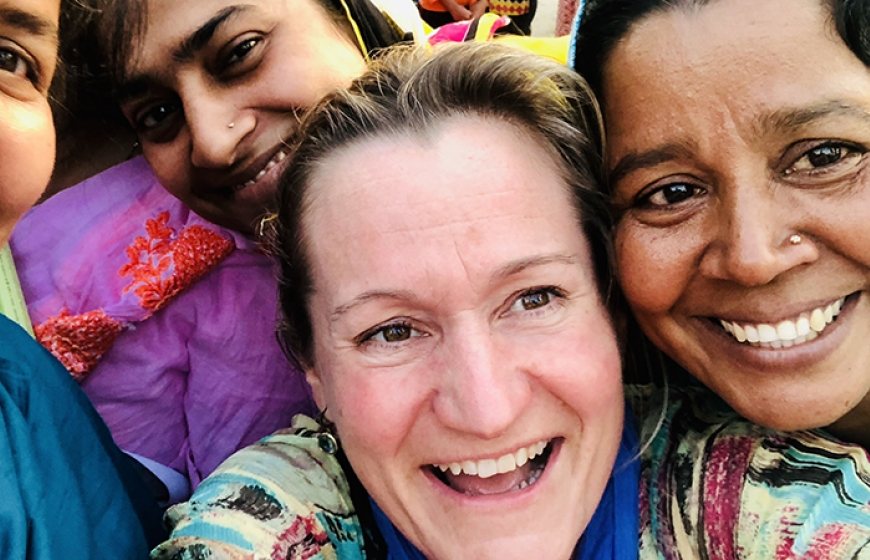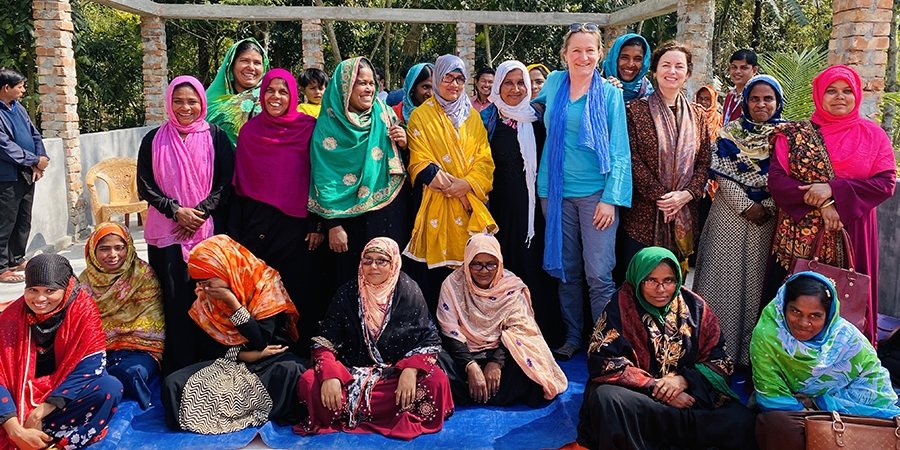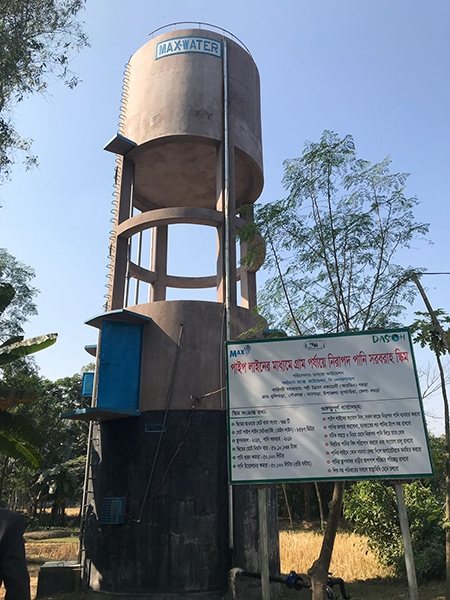Blog
16 April 2020Commercial water supply in rural areas of Bangladesh

What started 15 years ago as a small private initiative has grown into the professional, result driven entity that Max Foundation is today. Max TapWater, a new venture in Bangladesh to supply safe tap water to at least 200 small communities, marks the next step in the organisation’s development. The corona crisis, however, is putting pressure on its goals and planning, says co-founder Joke Le Poole.
‘Providing a healthy start in life for children under five in the most effective and efficient way. This ambition is the reason we started Max Foundation 15 years ago, after the death of our son Max, as a private initiative. Every day, nearly 18,000 children under five still die unnecessarily from infectious diseases like diarrhoea, malaria and pneumonia. These diseases can easily be prevented with access to safe water, adequate sanitation facilities and good hygiene conditions for mothers and children. We are choosing to incorporate an integrated approach based on WASH (Water, Sanitation and Hygiene) and health components like safe motherhood and nutrition in our daily operations. We combine this approach with a business ethos that promotes effectiveness and results. As part of our work, we raise awareness about the importance of toilets, for example, and in turn, this awareness creates demand. At the same time, we make sure that there is a supply chain in place that produces and installs toilets. From day one, all our work has been evidence-based so we are always in a position to know if something works or not. If it does, we continue it and if it doesn't, we don’t.
Strong growth
When we started, we used our own savings and some funds from friends. We did some research and decided that the country where we could have the most impact was Bangladesh. We grew fast and got to the point that we became too big to run our organisation entirely voluntarily. At that point, we set up a EUR 6 million project with the Dutch Embassy in Bangladesh. We both quit our jobs and started working full-time for Max Foundation. We had an office in Bangladesh and a small team in the Netherlands. That was Max Foundation’s second phase. In 2011, we reached a new milestone: we had worked on our integrated approach of WASH, nutrition and safe motherhood in 1,000 villages. The time has now come to scale-up and we are considering entering other countries.

Introducing Max TapWater
In recent years, we have worked on a financially sustainable business model for local piped drinking water in Bangladesh. Our aim was to design a cost-effective operation that would recoup the investments. Bangladesh is developing very quickly and people are willing to pay for drinking water, and especially for the convenience of having water delivered directly to their homes instead of having to lug water in buckets and jerrycans. Being able to shower at home is also important for privacy reasons. And of course, water safety is another major reason that people are willing to pay.
Our concept of local piped drinking water is now embodied in Max TapWater, a separate Max Foundation company in Bangladesh. Max TapWater works primarily in rural and semi-rural areas where, at most, two percent of the population has access to safe drinking water. We are also looking into opportunities of working in smaller provincial towns and urban slums.
Small schemes for safe drinking water
In essence, our goal is to build small grid piped water schemes for 40 to 50 households to provide small communities with safe drinking water. We will start in areas where the groundwater quality is not too poor. Over the next five years, Max TapWater’s target is to establish at least 200 schemes. Our programmes strongly strengthen local entrepreneurship. Each piped water installation will involve a local entrepreneur/investor in a model comparable to a franchise model. Given that each piped water scheme is at a small scale, we estimate that each entrepreneur will be able to run five to 10 piped water installations. Local entrepreneurs are part of the communities and the organisational structure will include a user committee and customer representatives. Close cooperation with local authorities is also essential.
In five years time, we will demonstrate that it is possible to run water supply in rural areas commercially. We believe that Max TapWater will inspire other entrepreneurs in other parts of the country to adopt the same business model independently of us. That would be a great result.

Capacity building and knowledge sharing
One of the many reasons that we have been able to grow so fast was our partnerships with various entities. One example is that our Netherlands Water Partnership (NWP) membership led us to the YEP Programmes, giving us the opportunity to bring young professionals on board. Currently, two Young Experts are working with us and we hope that young water professionals will help us continue to build capacity. Our Young Expert Maartje Pronk, for instance, is doing a great job at Max TapWater supervising the entire transition process, including the governance structure and financing. Being a member of NWP’s NGO Water Platform also gives us a great means through which to share our approach and experiences, learn from fellow organisations and intensify cooperation with other stakeholders in the water sector.
Delay due to corona crisis
Our plan was to build the first 26 piped water installations this year with seed money from the Max Foundation. The next step was to continue building about 40 schemes per year until we reached the planned 200 schemes. However, the corona crisis has heavily affected our mission and plans. We have had to postpone the construction of the first few Max TapWater installations. We will see what this new reality brings. The rainy season is approaching now and we will not be able to build in this period anyway.
Our investors and partners are assessing how to deal with the crisis and this may have consequences for the financing we need. In addition, customers and local entrepreneurs may be less willing to pay for water connections and investing in new businesses respectively because of the crisis. On the other hand, safe drinking water at home has never been more important as it allows people to really stick to lockdown and hand washing regulations. We are trying to use this momentum. Our partners, both local and international such as the Dutch Entrepreneurial Development Bank (FMO), are putting a lot of energy in getting things done right now. After all, the ‘right now’ factor is essential.’
Featured NWP members: Max Foundation